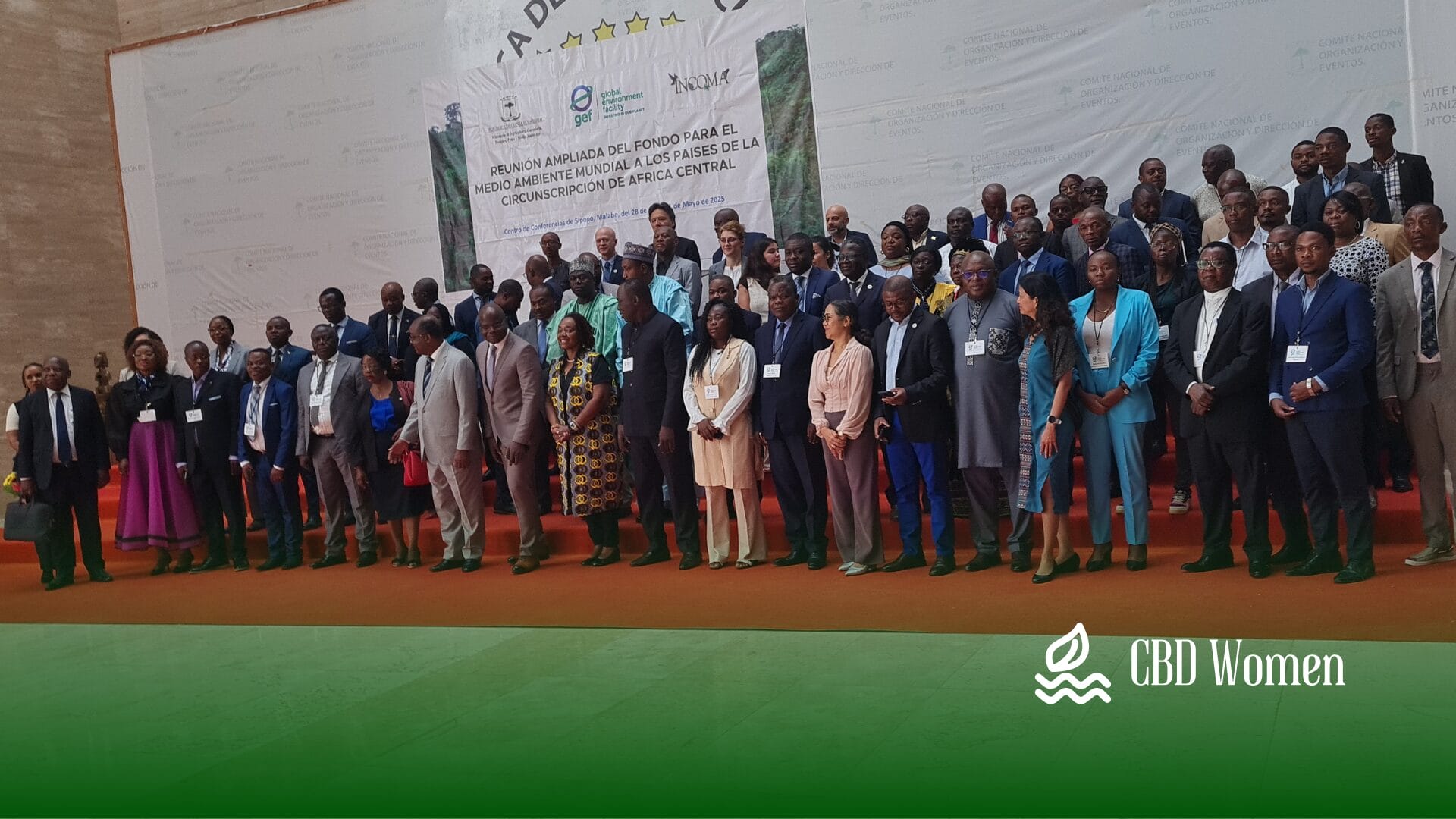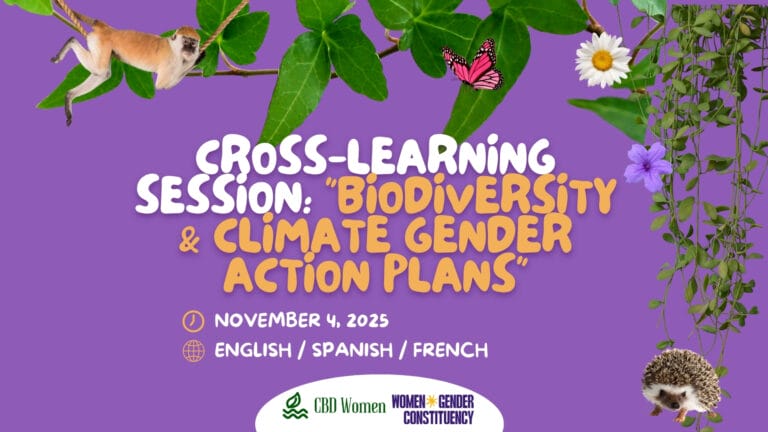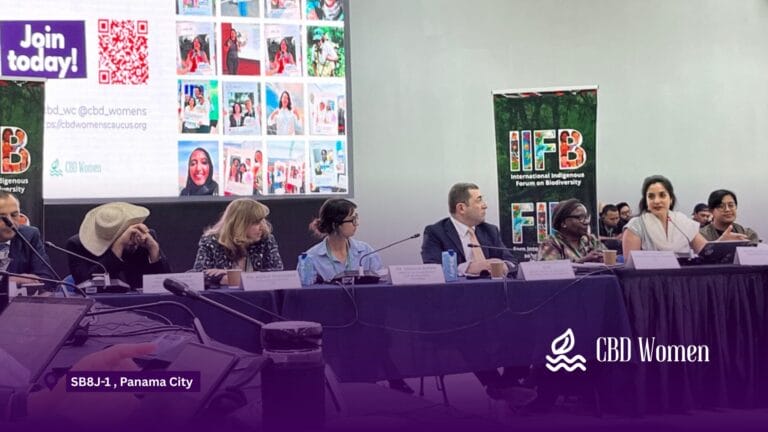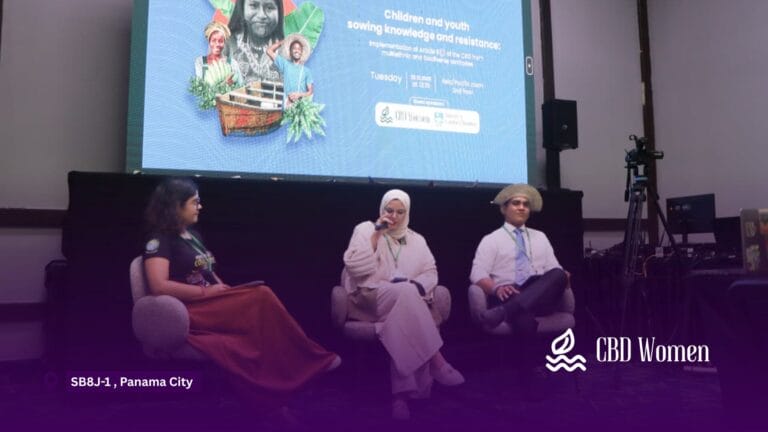By Patrick Mukanga from Conseil pour la Terre des Ancêtres (CTA), and a CBD Women’s Caucus member
The Global Environment Facility (GEF) has played a pivotal role in supporting African countries since 1991, helping them pursue innovative and sustainable pathways toward a nature-positive economy. With more than 1,800 projects implemented across the continent, the GEF has contributed $6.2 billion in funding, leveraging over $40 billion from governments, development partners, the private sector, and civil society organizations (Source: The GEF in Africa, February 2024). From tackling climate change and biodiversity loss to reducing chemical pollution, its mission spans six major international agreements, including the Convention on Biological Diversity (CBD)—a cornerstone in linking environmental protection with sustainable development.
And yet, as the world races to solve the environmental crises of our time, one truth remains: gender justice must be at the center of every solution. That’s where the CBD Women’s Caucus comes in.
At the recent GEF Central Africa Expanded Constituency Workshop, held from April 28 to May 1, 2025, in Malabo, Equatorial Guinea, the CBD Women’s Caucus raised its voice to ensure that gender justice and women and girls’ rights are not sidelined in GEF-financed projects. The workshop brought together government focal points, convention representatives, civil society, and GEF agencies from nine Central African countries, including the Democratic Republic of the Congo, Cameroon, and Gabon.
Why the CBD Women’s Caucus Was There?
The CBD Women’s Caucus is a community that champions and advocates to ensure that gender mainstreaming becomes more than a buzzword—it becomes a reality. The workshop was a critical moment to call for a bold and meaningful inclusion of women leaders and gender experts in GEF-related project planning, direct access to the funding for them, and effective participation in environmental decision-making, aligning with the CBD Gender Plan of Action and Target 23 of the Kunming-Montreal Global Biodiversity Framework.
Representing the Caucus was Patrick Mukanga from Conseil pour la Terre des Ancêtres (CTA), an organisation that is based in the Democratic Republic of the Congo.
works on respect for the rights of indigenous people, and the promotion of gender justice in
conservation work.
He attended with a clear mission:
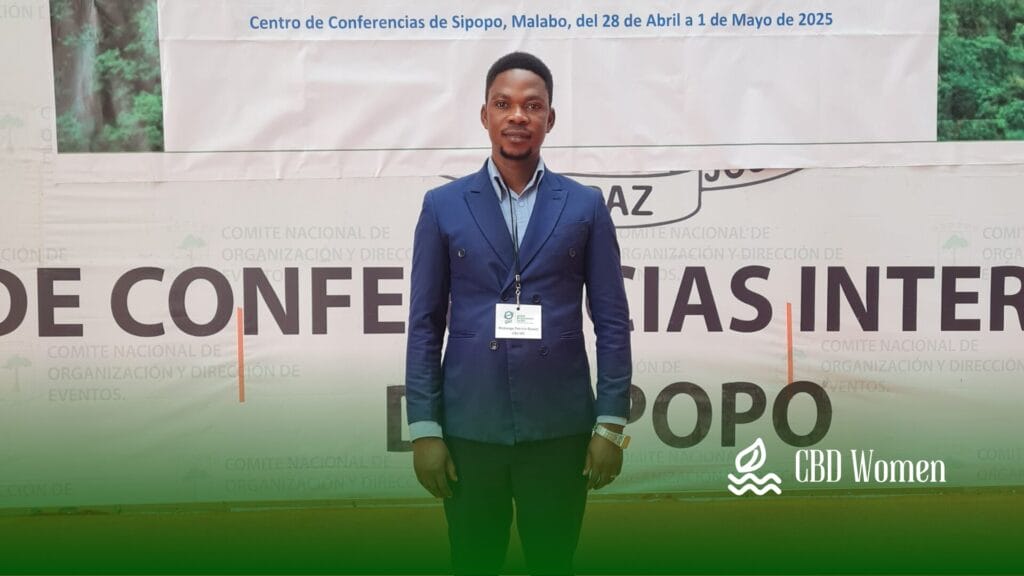
Unpacking the Workshop: Key Messages and Reflections
A central theme of the workshop was GEF’s new strategy: «Integration for Impact.» This approach promotes projects that simultaneously tackle multiple environmental and social issues—climate, biodiversity, pollution, and food security—through a single, comprehensive solution. But for such integration to be effective, gender justice must be baked into the strategy, not added as an afterthought.
Participants were invited to reflect on how integrated approaches can better serve communities and ecosystems. Yet, as the CBD Women’s Caucus noted, integration without inclusion can unintentionally reinforce inequality. A visit to a local chocolate factory, for example, exposed the persistent gender divide in economic roles: women were confined to low-level positions, with few in leadership or technical roles. The Caucus used this moment to recommend that the company invest in training programs for women and youth to promote equity and sustainability hand in hand.
Throughout the workshop, representatives also explored GEF’s various funding mechanisms—like the Small Grants Programme (SGP) and GBFF (Global Biodiversity Framework Fund)—and how these can better support women-led and community-based projects.
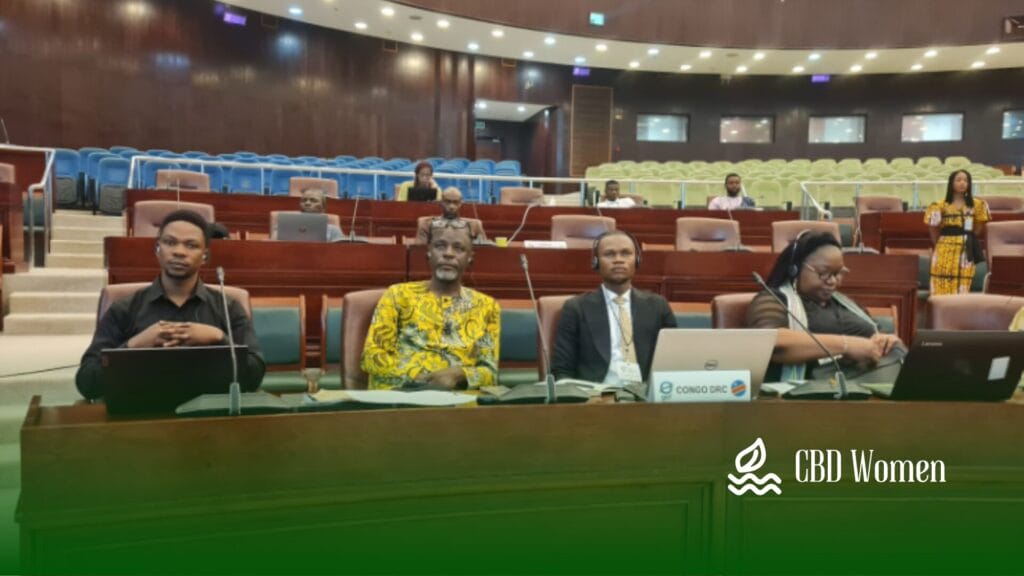
Advocating for Action
The CBD Women’s Caucus emphasized that:
The GEF and relevant bilateral and multilateral funding organisations must provide technical and dedicated financial resources for the implementation of the CBD’s Gender Plan of Action (GPA) as per Decision 15/11.
- The GEF must ensure, from its ninth replenishment onwards, direct access to funding for Indigenous Peoples, local communities, people of African descent, women, and youth.
- The GEF must reform its governance and decision-making structures to ensure the full, equitable, inclusive, and gender-responsive representation and participation of Indigenous Peoples, local communities, people of African descent, women, and youth.
- The GEF’s reporting to the CBD COPs should be disaggregated by ethnicity, gender, and age to enhance transparency regarding access and benefits received by local actors from biodiversity finance.
There was also recognition of GEF’s growing support for youth leadership, with recent initiatives funding young negotiators at international environmental conferences. However, gender balance in such programs remains a key challenge and one that the Caucus is determined to address. And such support and enthusiasm should also be delivered in equal amount to women leaders.
Looking Ahead
As countries prepare their final project submissions under GEF-8, the Democratic Republic of the Congo,DRC, for instance, still has $9.8 million in unused allocations. The clock is ticking, but so is the opportunity. The CBD Women’s Caucus is committed to pushing for these funds to prioritize gender-responsive, community-led initiatives that reflect the lived realities of women on the frontlines of environmental change.
The Malabo workshop was not just a meeting—it was a reminder: there is no environmental justice without gender justice.
Disclaimer: The views expressed in this blog are those of the author and do not necessarily reflect the official position or opinions of the CBD Women’s Caucus.

